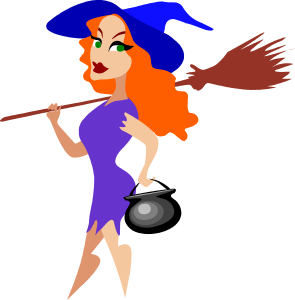My 95 year-old mother died recently, terribly disappointed that I didn’t die first. As she was pushing 90, she almost ran me over.
I’d heard the hiss of brakes as I got out of the car in front of the post office. There she was, behind the wheel of her custom-made Cadillac – so close, her eyes alive with hate.
When we saw that look as kids, we tried to will ourselves to stop breathing – so terribly ashamed we had been born. This time she told me that if she had hit me, she would not have been held responsible because I’d opened my door into traffic. Then later she said, “You know, Jane, if I really want to run you over, I won’t miss.”
One of my earliest memories involves standing in front of the open refrigerator, staring at two layered green balls. I knew one was lettuce and the other was cabbage, but just couldn’t figure out which was which. My mother was sick in bed and had ordered a bologna and lettuce sandwich. By then I was 4 and so it fell to me to take care of things like this.
I guessed wrong and handed her a bologna and cabbage sandwich. This is my first coherent memory of her rage hurling me into outer space, where I would spin and spin and then disappear.
When my father would come home after one of her rage attacks, she would describe it to him like an excited child. By the time they were done with their cocktail, the various humiliations were reduced to just hi-jinx on her part, and I was forced to laugh it off. Having an independent idea was called “talking back”, and the punishment was the silent treatment, something she could maintain for days or even weeks.
My mother could return anything to a store. It wouldn’t matter if it had been used, or if the tags were missing. She claims this is because she is “so honest”. At 92 she was involved in an accident. Her car was dented, the other car was totaled. After she was done with the officer, he wrote it up as being entirely the other driver’s fault. She could barely walk, let alone drive.
Both my brother and sister were more compliant than me. They each discovered a method of slow suicide and they’re gone now. After they died, my mother occasionally had something nice to say about them. Growing up, the three of us tried to figure out something called love, and we practiced in the backyard and in the basement. We were at our best when we could indulge in gallows humor, finding it excruciatingly funny that she wanted us all dead. I have no doubt my mother’s malice was a factor in my sibling’s awful deaths.
I’m a psychotherapist – funny, huh? I used to wonder why it was that children of malevolent parents ended up in my office in greater numbers than those of my colleagues. Now I see it’s because I believe them. Until the last day, my mother’s public disguise remained impeccable and absolute. Not being believed is one of the most destabilizing aspects of having a parent like this.
Who would believe that she claimed I spent the first six months of my life “parked” in a carriage out by the road? And if I asked her why, she said, “You liked it there”. That she would laugh delightedly at her wit while telling me I had a face only a mother could love, but still, I looked better in the dark? That she’s thrown hot water on me and that I can still feel her hands around my throat? That since my father died she had three boyfriends 30 years her junior?
I still don’t quite believe that growing up she did not allow my siblings and I to throw up, even though as adults we talked about it many times. But when I went away to college I promptly got sick and threw up, and I do remember having no idea what was happening. Stories about Medean mothers and gorgons have been around since the ancient Greeks, perhaps longer. We still, however, have a lot more trouble wrapping our minds around the idea of murderous mothers than we do murderous fathers. Diane Downs and Susan Smith are considered anomalies, and hopefully they are.
But the children who grow afraid their own mother might pull the trigger, slide the car into the lake, or some such thing – we exist and we’re desperate to be heard and to be believed. I own everything to the people who have believed me.
